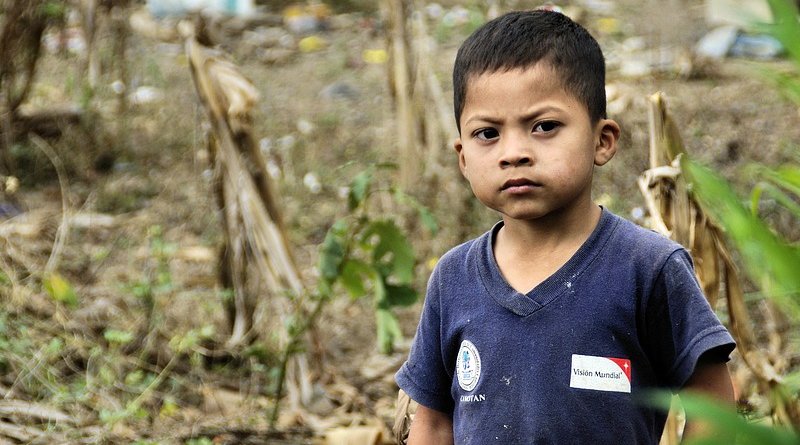Guatemala Needs Peace And Justice – OpEd
By IDN
By Jonathan Power*
Twenty years after 200,000 unnecessary deaths, 40,000 “disappearances” and 440 decimated villages, peace formally came to the last redoubt of the Central American war zone, Guatemala, in 1996.
Put it up there with Rwanda, Cambodia, ex-Yugoslavia and today, the Congo as one of the great killing fields of the “post-war” world.
The violence never reached the crescendo it did in neighbouring El Salvador, nor did as many people just “disappear” as happened in Chile and Argentina, nor did the war stretch on and on as long as in Peru and Colombia, but no country in Latin America came near Guatemala for long-term systematic assassination and torture.
Before my first trip to this heart-torn country in 1980 I went for a briefing in London from the secretary-general of Amnesty International. I had asked him to point me in the direction of the worst country on their books and Guatemala it was. “How many political prisoners do you have there?” I asked him. “None”, he replied, “Only political killings.”
On that first visit I broke the story in the International Herald Tribune and the New York Times that the death squads were not ad hoc groups of off duty soldiers and private bodyguards of big landlords resisting peasant revolts, as was the common excuse, but were organized and directed from the presidential office. But there was an overpowering silence from official Washington where Ronald Regan was the new Teflon president.
The U.S. ambassador to Guatemala, David Chaplin, regularly prompted his Washington superiors as to what was going on, but it fell on deaf ears. In February 1984 only a day after he had sent one of his revealing cables to Washington he was taken aback to hear that Elliot Abrams, the assistant secretary of state for human rights and one of the architects of Reagan’s anti-communist crusade in Central America, had signed off on a secret report to Congress in which he argued that human rights were improving in Guatemala and Congress should no longer be inhibited about the resumption of U.S. security assistance.
A year later, I took a three-day hike around Lake Atitlan, a massive, silver sheen of wide water lying beneath three extinct volcanoes, the heartland of the major guerrilla groups fighting on behalf of the overcrowded Indian communities. I learnt not just of the hardship of remote Mayan villages but of brave North American Catholic priests who lay down their lives in order to relay to the outside world the massacres and mayhem that happened in their parishes.
When George Bush senior became president, he moved to use his authority to wind down the killings. In 1999 President Bill Clinton, who had encouraged UN mediation that led to the 1996 peace accords, visited Guatemala and said, “For the United States it is important that I state clearly that [American] support for military forces and intelligence units which engaged in violence and widespread repression was wrong.”
When a country has been through so much violence it is difficult for it to settle down and the left is too divided and not politically strong enough to work with the government to give the country stability. Criminal violence is horrendous. The political violence has ebbed and flowed. Under President Alvaro Arzú who negotiated the peace accords, the official death squads were dismantled. Human rights activists surfaced from the underground. But then under his successor, Alfonso Portillo, the situation regressed.
The US government of Joe Biden has sanctioned 36 Guatemalans, mainly officials and businesspeople as “corrupt and undemocratic actors”. However, in January 2022, the New York Times reported at length on a trial where a court sentenced five former paramilitary members to 30 years in prison for the rape of several indigenous women in the early 1980s during the civil war. But, the paper reported, “While Guatemala has held more trials for abuses committed during the civil war than almost any country in the region, most of the architects of these atrocities have avoided prison.”
In August 2022 the Economist reported that Guatemala has the world’s fourth highest incidence of child malnutrition. Its biggest export is people- fleeing to Mexico and the US. Despite steady growth in the economy, it remains one of the most unequal countries in the world. Three quarters of the rural population live in conditions of abject poverty. Organised crime networks control the country’s vast border regions, transforming the country into an ever more fully-fledged narco-state. Until Guatemala finds peace in its rural heartland there will never be enough development to hold the population to their home fields.
Its nearly 50 years since I first visited Guatemala. Altogether I’ve made four visits. Mostly I watch it from afar. The war is over. Mass graves piled with bodies are no longer found. There are elections, albeit with much fiddling, and a press that struggles to shout against abuses. But the scales are tilted badly one way. Justice is too rare. Persecution too common.
If the world-wide human rights lobby can have so little benign influence on such a small and inconsequential country, what hope is there for the world at large? I’ve asked myself this question many times. I remember Martin Luther King’s reply when asked a similar question about the war in Vietnam, “If we do not act, we shall surely be dragged down the long, dark, and shameful corridors of time reserved for those who possess power without compassion, might without morality, and strength without sight”.
* Jonathan Power was for 17 years a foreign affairs columnist and commentator for the International Herald Tribune, now the New York Times. He has also written dozens of columns for the New York Times, the Washington Post, the Boston Globe and the Los Angeles Times. He is the European who has appeared most on the opinion pages of these papers.

